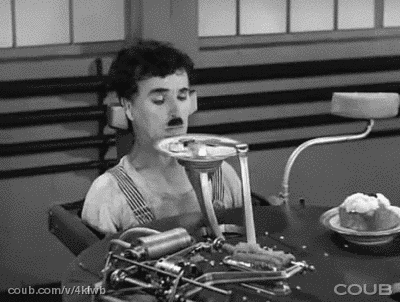Have you ever walked out of class feeling like your head is about to explode?
Have you ever sat through a class feeling completely lost as the teacher adds layer upon layer of information, expecting you to learn it all before the next class?
Have you ever wondered why learning some stuff just doesn’t want to penetrate your head, as if your brain just doesn’t want to switch on?
If you have answered yes to any or all these questions, then this is the exact place for you. Welcome! In the next few paragraphs you will start to discover the secret behind real learning.
Learning is often defined as a process of acquiring or gaining something. A consequence to acquisition or gain is to have something you didn’t have before.
Of course, it can be brilliant to have a lot of things, but how does this sit in the learning process? It is one thing to have a lot of input, or knowledge, but what happens if that input is not processed and transformed into output?

In a factory line we are talking about an awful lot of back-up and even clogging. If any of you saw Charlie Chaplin trying out the eating machine in Modern Times (left), rejection and overload may also occur. The same may happen in learning. Take these two examples :
How many of you studied a foreign language at school for over five years, got top grades, but found yourselves incapable of holding more than a basic conversation in that language? I raise my hand.
Employers at times may be hesitant to employ new graduates, not for lack of knowledge, but for lack of experience or practical output to their knowledge. Has this ever been your experience?
In the professional world, when knowledge is associated with experience and practise, people no longer have something but they become some something. Some may be doctors, others may be engineers. And then there are those who will be bilingual or even trilingual, if not more.
The question is, what is the tipping point whereupon knowledge goes from being something external, something we have, to something internal, something we are?
The key is in the processing of knowledge. If knowledge represents the input, then processing that knowledge implies a stage of internalisation and assimilation. The output depends not only on what we know, but on how well that knowledge has been processed, as this will influence how we go on to use it and what we use it for.
Learning, as we have seen, is defined as a process of acquisition. For those of you that answered yes to any of the opening questions, you will understand that actual learning frequently resembles just that. The French have a perfect description for this: bourrage du crâne which can visually be translated as stuffing your head.
I don’t know about you, but personally, I’m really not a big fan of getting my head stuffed. While we may not always be able to avoid the stuffing, we most definitely can do something about it. If real learning is to take place, focus and attention need to be given not to the input or stuffing stage, but to the process used to internalise and assimilate that knowledge. Only then can we start to ease through and start processing some of that backlog of information.
~≈◊≈~
Are you ready to discover how to get that process rolling? Upcoming posts will be revealing just that. Head on over to the Follow button and give it a click.
What are your experiences with learning? Please share your highlights or worst moments in the comments below.